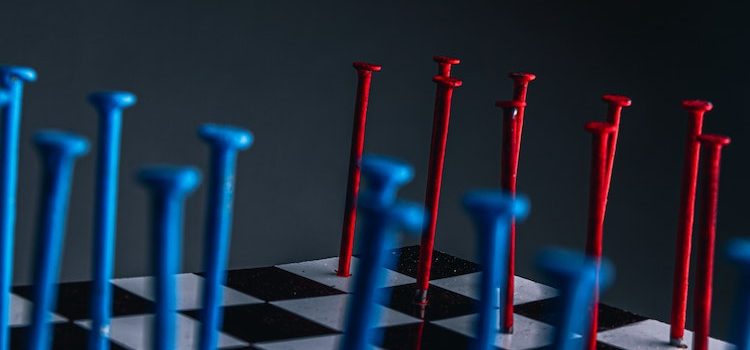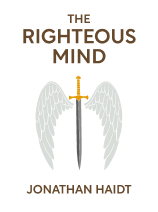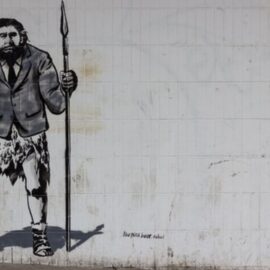

This article is an excerpt from the Shortform book guide to "The Righteous Mind" by Jonathan Haidt. Shortform has the world's best summaries and analyses of books you should be reading.
Like this article? Sign up for a free trial here .
How are political views formed? Do we learn them? Or are we born with them?
In The Righteous Mind, social psychologist Jonathan Haidt discusses how we can have more constructive conversations with people who have different political leanings than our own. Interestingly, he believes that political ideology is at least partially innate, not just learned. He offers three keys to understanding ideological development, which can help bridge the divide.
Read more to learn about ideological development.
Rapid Ideological Polarization
People’s groupish behavior, along with their commitment to their moral matrices, can lead them into a blind defense of an ideology or a political party. But, we can make better arguments and have more productive conversations with one another.
There’s significant evidence that we are understanding each other worse than ever. America is experiencing rapid ideological polarization, with the gap widening between political opinions on the left and the right. There’s been a decline in the number of people who self-identify as centrist and a corresponding rise in those who identify as liberal and conservative. So, how can we learn to talk to one another better?
> A Note on Political Diversity: This article focuses on the liberal to conservative scale and the psychology of “liberals” and “conservatives.” Many people in the U.S. don’t characterize themselves as a member of either major party and don’t reduce ideology to one dimension. Most people, though, are able to place themselves on the liberal to conservative axis, even if they don’t identify as a Republican or a Democrat.
The 3 Keys to Understanding Ideological Development
Before we can understand how liberals and conservatives can talk to one another more productively, we need to explore how liberals and conservatives develop their ideology (or their understanding of how we should order society).
How ideological development works might surprise many of us. Political scientists thought for a long time that it was mostly your upbringing that determined your political ideology. But twins brought up in two different households are more likely to develop a similar ideology than unrelated siblings brought up in the same household. So, political ideology is at least partially innate.
There are three big steps in understanding ideological development:
1. Genes create brain chemistry: Scientists have found that liberals and conservatives have some different genes in their brains: These are mostly related to neurotransmitters that monitor and determine our response to fear or threat. Conservatives respond more strongly to threats of danger than liberals, whereas liberals are more interested in new experiences or novelty. This is one way that we move from genes to politics: Genes develop brains that respond differently to sensors in the world. In turn, these genes help to determine politics.
2. Different traits move children in different directions: Personality formation and ideological development are based on innate and learned traits. We’ll discuss two here.
- Dispositional traits: These traits are the same throughout your life, and develop based on your genes. Children who become liberals are often curious and verbal. Children who become conservatives are often neat and obedient.
- Characteristic adaptations: These traits materialize through childhood as people face different circumstances and environments. For example, let’s say in a sibling pair, the boy is more obedient and the girl is more curious. If they go to a strict school, the boy will fit in much better. He’ll develop a different friend group and different interests than the girl, who will become socially disengaged in a way she would not have if she had gone to a less structured school. As they grow up, the girl goes off to college in New York, while the boy stays close to home and becomes a “pillar of the community.” His life has led him in 2008 to respond to John McCain’s messaging, where hers has led her to respond to Barack Obama’s. Neither of these children was predestined to vote for one of these candidates. But they had different dispositional traits which led them to different adaptations which in turn codified their ideologies.
3. We create our own stories: To make sense of our lives, we construct narratives. Even though these narratives are post hoc, they still shape people’s lives and the decisions that they make. They impact ideological development. Consider this story from Rolling Stones guitarist Keith Richards’ biography. He describes how when he was young, he was well-behaved and part of a choir. The choir, run by the school, frequently took him out of his classes to go to various recitals and competitions. But once he hit puberty, the choir director was no longer interested in the kids, and the kids in choir were all told they’d have to repeat a year of school, because they had missed so much. He told himself that he’d spend as long as it took trying to burn that ridiculous system to the ground. He told himself a story based on his experience that resulted in never voting for a Tory (a British conservative) who stood for that sort of authority without rebellion.
When we understand ideological development, we are more equipped to tackle the problem of ideological polarization as we better understand each other.

———End of Preview———
Like what you just read? Read the rest of the world's best book summary and analysis of Jonathan Haidt's "The Righteous Mind" at Shortform .
Here's what you'll find in our full The Righteous Mind summary :
- Why we all can't get along
- How our divergent moralities evolved
- How we can counter our natural self-righteousness to decrease political divides






